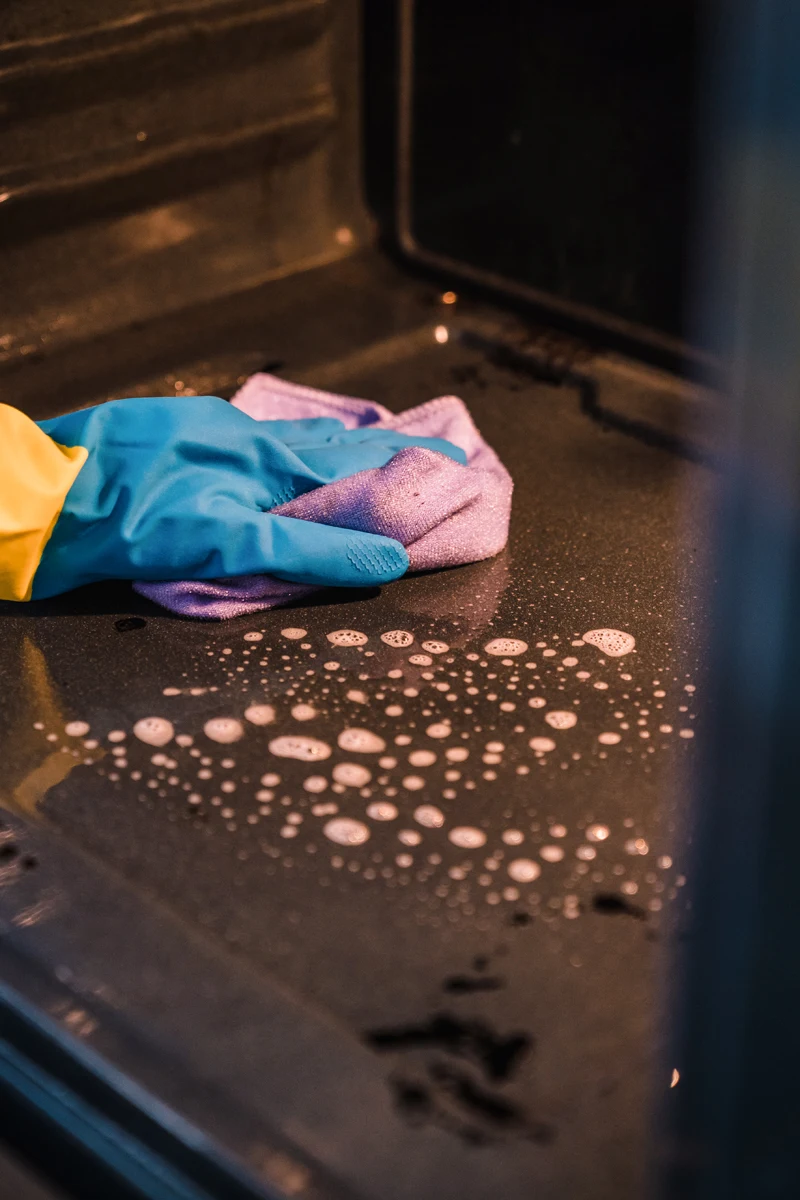Photo: Taylor Grote
Is your trusty old oven starting to show signs of wear and tear? Are you torn between the decision to repair it or replace it with a shiny new one? It's a common dilemma for homeowners, and it can be a tough call to make. But fear not, we're here to help you navigate this kitchen conundrum. In this blog post, we'll walk you through the factors to consider when deciding whether to get an appliance repair or replace your oven. By the time you're done reading, you'll have a clear picture of which path to take.
The Oven's Age: The Starting Point
- The Young Oven: If your oven is relatively new, say, less than five years old, repairing it is usually the way to go. Newer ovens tend to have fewer problems and are more energy-efficient, so fixing the issue can extend their lifespan significantly.
- The Middle-Aged Oven: Ovens that fall into the 5 to 10-year age range can be a bit trickier. You'll want to weigh the cost of repairs against the potential benefits. If the repair cost is less than half the price of a new oven, fixing it might make sense.
- The Senior Oven: If your oven has been faithfully serving you for over a decade, it's considered a senior citizen in appliance years. In this case, it might be wiser to start considering replacement. Older ovens tend to be less energy-efficient and may require frequent repairs, which can add up over time.
The Repair vs. Replacement Cost Analysis
Before making any decision, it's crucial to do a cost analysis. You don't want to overpay repair, without getting great results, do you? So, here are a few ways to approach the cost analysis:
- Step 1: Diagnosis and Estimate
Start by calling a reputable appliance repair technician to diagnose the problem with your oven. They will provide you with an estimate for the repair. Make sure to get different opinions and multiple quotes to get a fair price.
- Step 2: Compare Repair Cost to Replacement Cost
Now that you have the repair estimate, it's time to do some math. Research the cost of a new oven that meets your needs and falls within your budget. If the repair cost is significantly less than the price of a new oven, repairing is a sensible choice.
- Step 3: Factor in Long-Term Costs
Consider the long-term costs associated with both options. Newer ovens are often more energy-efficient, which can result in lower utility bills. Additionally, they may come with warranties that cover repairs for a few years, reducing future expenses. On the other hand, an old oven may continue to demand repairs, driving up your maintenance costs.
- Step 4: Think About Features and Upgrades
When pondering replacement, take into account the features and upgrades that modern ovens offer. Maybe you've always wanted a convection oven or a sleek induction cooktop. Replacing your oven could be an opportunity to upgrade your kitchen and improve your cooking experience.
Photo: Liliana Drew
What Are the Signs It’s Time to Replace Oven?
While cost is a significant factor in the decision-making process, certain signs should tip the scale in favor of replacement:
‣ Frequent Repairs: If you find yourself calling the repair technician more often than you'd like, it's a sign that your oven is nearing the end of its life. Frequent repairs can be a money pit in the long run.
‣ Inefficient Cooking: If your oven takes forever to preheat, cooks unevenly, or has hot spots, it's time to consider a replacement. Modern ovens are designed for better cooking performance.
‣ Outdated Features: If your oven lacks the essential features you desire, such as a self-cleaning function or digital controls, upgrading to a new model can greatly enhance your cooking experience.
‣ Safety Concerns: Any appliance that poses safety risks should be replaced immediately. Gas leaks, electrical issues, or faulty temperature controls are serious concerns that require swift action.
Benefits of Repairing Your Oven
While a replacement has its merits, repairing your oven can also offer several advantages. Repairs are generally cheaper than buying a new oven, especially if the issue is minor. Fixing the problem can give your oven a new lease on life, allowing you to get more use out of it.
Additionally, repairing and maintaining appliances can be a more environmentally friendly option since it reduces waste generated from disposing of old appliances.
Tips for Prolonging Your Oven's Life
If you decide to repair your oven or want to extend the lifespan of your current one, here are some tips to help you get the most out of it:
Regular Cleaning: Keep your oven clean to prevent the buildup of grease and food residue, which can affect its performance.
Use Oven Thermometers: Oven thermometers can help ensure your oven maintains the correct temperature for cooking.
Avoid Overloading: Don't overcrowd your oven. Leaving enough space for air circulation can help maintain even cooking.
Scheduled Maintenance: Consider scheduling regular maintenance checks with a professional to catch and address issues early.
Summarizing...
The decision to repair or replace your oven ultimately comes down to a careful evaluation of the costs, benefits, and the age of your appliance. Take the time to assess the situation and don't rush into a decision. Whether you choose to repair your trusted old oven or invest in a shiny new one, remember that the heart of your kitchen is where delicious meals are made, and your choice should align with your cooking needs and budget.
In the end, a well-informed decision will not only save you money but also ensure that your culinary adventures continue to delight your taste buds for years to come.
Lots of love,
Liz







.JPG)